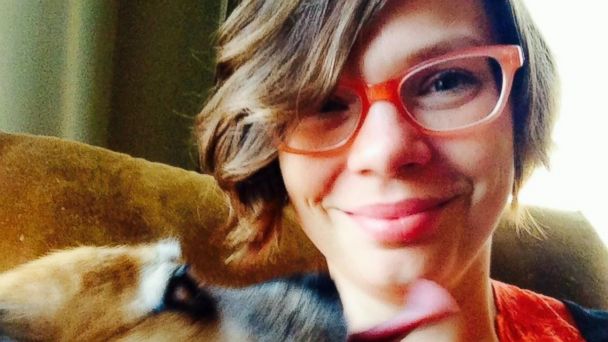World Cancer Day: Life After Recovery

Emily Helck is a patient blogger for ABCNews.com's "Day in the Life" series. (Credit: Courtesy Emily Helck)
By Emily Helck
There's a phrase that was tossed around a lit class I took once: the long 18th century. It refers to the fact that, in the West, the influence of this century stretches longer than its 100 years. The ideas that defined it were percolating in the 17th century and continued into the 19th.
Though I'm now 30, I am still experiencing what I call my long 28th year.
Twenty-eight was my age when I received a diagnosis of breast cancer. I was 28 when my breasts were removed, 28 when I did chemo, 28 when I finished radiation. That was in 2012. But it is so not over.
I realized the other day that, even though it's two years since I lost my hair and it's now grown back to chin length, I still scan stores for the perfect chemo hat - a thin, soft knit, not too warm, and not too expensive. I still find myself perking up at a bin of vintage silk scarves, which had been my preferred method of baldness cover-up.
For many young adults, the feelings after cancer treatment are not all "Woohoo!" In fact, a 2013 study found that 12 months after the completion of treatment, 44 percent of young adults reported moderate to severe post-traumatic stress symptoms, and 29 percent seemed to be suffering from PTSD.
For me, this manifests in a number of ways - like tachycardia during a routine oncology follow up, flashbacks when I smell alcohol wipes, or jumping out of my skin when I drop a can of cat food. Still reeling from the blows to my body and heart, I've found that cancer casts a long shadow.
So how do I shine a light in that place? A big part of it has been sharing my story through creative projects. By talking about it. By reaching out to others going through similar things.
When I took on a full-time position at the Cancer Research Institute last month, some friends were a bit confused and concerned.
"Are you sure you want to think about cancer all day?"
"Isn't this bringing up a lot of feelings you don't want to relive?"
And, the one I feel is often implied: "Isn't it time to move on?"
Those questions come from a place of love from my non-cancer peeps. But here's the truth, which I think my fellow cancer kids might recognize: I think about cancer every day no matter what. I feel feelings I don't want to feel on a regular basis, no matter what. My experiences with cancer are not things I am in danger of forgetting. No matter what.
So thinking about cancer every day? Yep. Sounds about right. And does it bring up emotions? You bet. But instead of these thoughts and feelings spooling onto themselves over and over inside my dark little head, they project outward. Instead of using my powers of obsession to spend hours thinking about my own disease, I can think about how best to reach a new patient population. I can think about ways to partner with other nonprofit groups. I can think about how to help someone who was just diagnosed.
For me, the events that happen in life are not inherently meaningful. I don't think that anyone is meant to get cancer to learn a life lesson, or because they are strong enough, wise enough, to handle it in a socially acceptable way. I think that mode of thinking negates individual accomplishment. Some people do handle it beautifully; some people do learn from it. Some people put it behind them, others embrace it. But that's because they choose to. They choose what the experience will signify.
And so can I. My hope is that by helping others who walk the cancer road, I can make my long 28th year mean something other than loss.
Emily Helck is a 30-year-old writer and artist from Jersey City, N.J. After completing treatment, she posted a video containing a year of self-portraits to her blog , which has since gone viral . She is currently the Online Community Manager for the Cancer Research Institute .
"A Day in the Life" is a series of blogs written by people who are living with medical conditions.